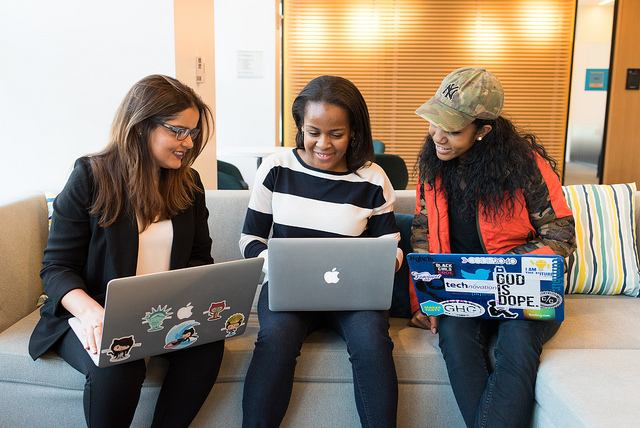
Capturing informal learning in the workplace

Traditionally, most workplaces carried out the majority of learning and development through formal learning channels, such as training courses, workshops and seminars. These days, we’re seeing less traditional methods of knowledge sharing gaining in popularity – methods that we refer to as informal learning.
However, while evaluating the results of traditional learning is quite straightforward, capturing informal learning is not as easy.
But that doesn’t mean it can’t be done. It’s important to embrace informal learning as the highly effective tool that it is, to be used alongside your organisation’s formal channels.
Here, we’ll look at exactly what informal learning is, how you can integrate it into your structured training program, and how you can capture and evaluate the results.
What is informal learning?
As we've mentioned previously, you should be talking about informal learning. Learning is an ongoing process, with the workplace providing an endless source of inspiration, knowledge and experience.
In this way, the type of learning that we refer to as ‘informal’ is very natural – it’s not something that’s planned or scheduled.
Informal learning occurs organically and through less traditional methods, as employees absorb and share information through social media and online learning communities. It’s something that occurs spontaneously, as you’re casually scrolling through Facebook, reading an article online, or chatting to a colleague via instant messaging or in the lunchroom.
In these cases, you didn’t plan to become more educated on a certain subject, or sit down to explore a specific topic. Informal learning just happens as a part of everyday life.
The benefits of informal learning
Informal learning allows knowledge to be shared through an organisation much faster than formal learning channels, which is advantageous for both employers and employees.
With social media delivering information both constantly and instantly, employees don’t need to wait for a set training day or team meeting to be aware of company updates or organisational news. From a business perspective, these channels mean knowledge can be disseminated to all staff in an instant, making communication more effective.
As an employer, informal learning can also be a very economical option for your staff’s learning and development. While most companies spend a huge part of their L&D budget on formal learning methods, such as training courses and workshops, informal learning will cost your business far less as it uses channels that most employees will already be using – such as social media.
To learn more, see how you can take your informal learning to the next level with Go1 Me.
Informal learning and the internet
Social media channels, namely Facebook and Twitter, are where most workers are turning to informally seek knowledge. In this way, social media platforms can be very effectively harnessed for informal learning.
They deliver instant, relevant and mobile-friendly information to users, making them perfect for informal learning. With social media easily available on the go, individuals can choose to digest information in a way that suits them, absorbing knowledge organically at a suitable time and in a suitable format.
Organisations can use Facebook groups to engage employees in discussions and knowledge sharing, which can be very useful for dispersed teams with remote workers. With Twitter’s instant updates and ongoing commentary, businesses can also provide fast and easy education on new services, products or company information. LinkedIn can also be used for informal learning, allowing users to connect with other professionals for knowledge sharing, relevant updates and industry news.
Blogs are a popular way for many organisations to provide employees with information, instead of the traditional training room or workshop learning environment. With the ability to enable comments on articles, blogs also encourage discussion, feedback and informal learning amongst readers.
Capturing and evaluating informal learning
So how do you capture informal learning in your team, to be evaluated alongside more traditional learning channels?
A good Learning Management System (LMS) can be used very effectively to assist informal learning in your organisation.
To integrate informal learning into your structured training program, you’ll need to encourage staff to participate in impromptu learning activities. Informal learning interactions between employees can then be tracked, recorded and evaluated through the LMS platform, improving knowledge sharing, collaboration and engagement.
Continuing to encourage informal learning will go a long way in fostering a strong learning culture across your organisation.
For more insights about informal learning and beyond, subscribe to the Go1 newsletter today to stay on top of all the latest L&D trends. Or, you can book a demo now.




